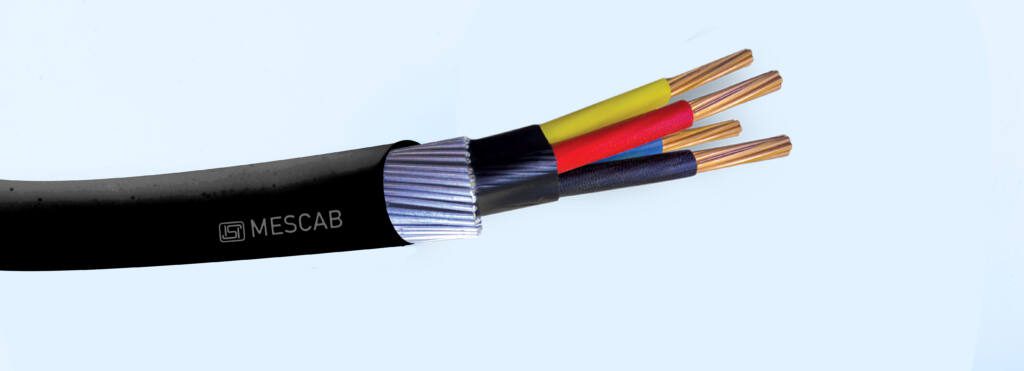LT Copper Power Cable vs Control Cable: Ultimate Guide to Understand The Key Differences
In today's modern world, electricity powers almost every aspect of our lives. From homes to businesses, and even industrial settings, electricity is essential for powering equipment and enabling automation. But have you ever wondered about the different types of cables that make this possible? In this blog, we'll explore the distinction between LT copper power cables and control cables, helping you understand their unique roles and characteristics.
What is a LT Copper Power Cable?
Let's start with LT copper power cables. A power cable is an electrical cable that carries high power energy from a power source to various electronic devices. These cables are essential for transmitting electricity safely and efficiently. Power cables typically consist of multiple electric conductors enclosed within a protective sheath. Copper and aluminium are commonly used as conductors due to their high electrical conductivity, and materials like polyvinyl chloride (PVC) provide insulation to prevent electrical leakage. Power cables can be installed overhead or underground, depending on their intended use.
What is a LT Copper Control Cable?
Now, let's delve into LT copper control cables. Unlike power cables, control cables are designed to facilitate the operation of equipment through automation. These cables transmit signals to control the functions of various electrical devices, making automation possible. Control cables are integral to systems such as robotics, assembly lines, and power distribution networks. To ensure reliable performance, control cables are often equipped with features like UL ratings and protective shielding, allowing them to withstand harsh environmental conditions and frequent flexing during installation.
Differences Between LT Copper Power and LT Copper Control Cables:
While LT copper power cables and control cables serve distinct purposes, there are several key differences between them:
- Insulation: LT Copper Power cables require thicker insulation compared to control cables, especially when operating in similar environments.
- Voltage: LT Copper Control cables typically operate at voltages ranging from 300V to 600V, whereas power cables can handle higher voltages, often up to 0.6/1 kV.
- Colour and Cores: Power cables have a less number of cores. They are usually single-core, 2-core, and up to 5-core. Control cables transmit control signals hence, control cables have more cores, from 2 to 24 cores, or even more. Copper control cable mainly comes in black and white and power cable comes in colours.
- Functional Difference-Control cables are designed in automation control for sending signals that control the equipment, as well as for measurement and regulation. The power cable is the type of cable used to send the energy from its source to the equipment. Power cables are used in overhead and underground energy transmission, as well as in industrial settings. These are multi-conductor cables with aluminium or copper conductors.
- Application: Control cables are applied in automation systems, transport, building, construction, mining, and industry. On the other hand, power cables are widely used in power generation, distribution, transmission, transformation, and power supply lines.
- Current flow: The current flowing through the power cable is much higher than that of the control cable.
Choosing the Right Cables:
Now that you understand the differences between power cables and control cables, you're better equipped to select the appropriate cables for your specific needs. Whether you're powering a residential property, commercial establishment, or industrial facility, choosing the right cables is crucial for ensuring safety, efficiency, and reliability.
Mescab stands out as a leading manufacturer in India, renowned for its superior quality power and control cables. Let's delve into why it is the best choice for your cable needs.
- LT Copper Power Cable Excellence: Power cables are the backbone of any electrical distribution system, tasked with transmitting and distributing high power safely and efficiently. Mescab's power cables, crafted with both aluminium and copper conductors, are engineered to meet the most demanding requirements. With a focus on high conductivity and robust insulation, these LT copper power cables ensure reliable performance while safeguarding against electrical hazards. Whether it's airports, hospitals, commercial centres, or heavy machinery, Mescab power cables are trusted to deliver power where it's needed most. Aluminium power cables have excellent installation properties, being lighter in weights.
- LT Copper Control Cable Innovation: In the realm of automation and control systems, precision and reliability are paramount. Mescab's range of control cables excels in providing seamless control of AC voltage and protecting critical lines across various automation fields. With options extending up to 37 cores, these control cables offer unmatched versatility and performance. From assembly lines and robotics to power distribution these control cables play a vital role in transmitting signals and ensuring seamless automation.

